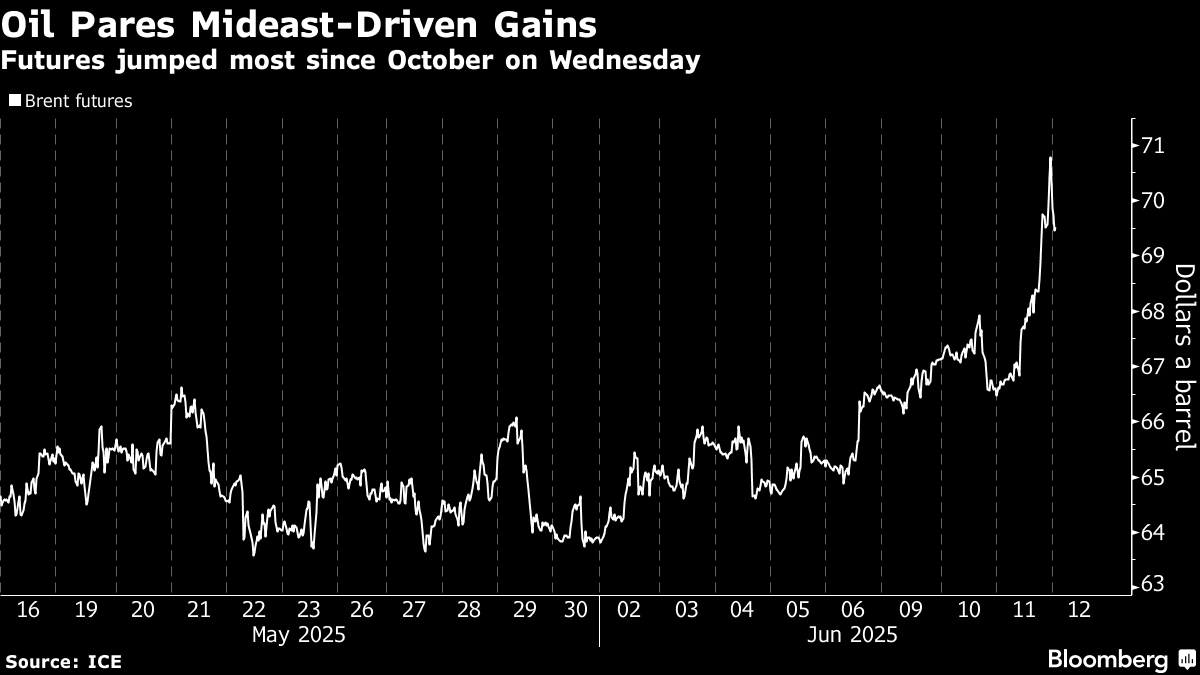Oil Pares Mideast-Driven Surge as Trade Tensions Flare Up Again
(Bloomberg) -- Oil edged lower — after jumping more than 4% on Wednesday — as traders tracked tensions in the Middle East and the latest moves in US trade policy.
Brent fell toward $69 a barrel after rising the most since October in the previous session, while West Texas Intermediate was below $68. Crude shot higher after Iran threatened to strike US bases in the region if talks over its nuclear program fell through. The US ordered some staff to depart the embassy in Iraq, and allowed military service members’ families to leave the Middle East.
On the trade front, President Donald Trump said he intended to send letters to trading partners in the next one to two weeks setting unilateral tariff rates, ahead of a July 9 deadline to reimpose higher duties on dozens of economies. That blunted appetite for risk assets, hurting equities.

Crude’s midweek surge jolted futures out of the narrow range they have traded in for most of the past month, highlighting its sensitivity to geopolitical tensions. The Middle East produces about a third of the world’s oil, including from Iran, as well as fellow OPEC+ members Saudi Arabia and Iraq.
“The announced drawdown of all non-essential US Embassy staff from Baghdad and authorized departure of non-essential personnel from Bahrain and Kuwait raises the specter of a heightened threat environment in the region,” RBC Capital Markets LLC analysts including Helima Croft said in a note.
Brent has shed about 7% this year, hurt by expectations the US-led trade war — including a standoff with China — would erode demand, and a move by OPEC+ to revive idled production. While Beijing and Washington agreed to ease tensions this week, Trump’s comments on unilateral tariffs revived concerns about the impact of his aggressive bid to rework the global trade order.
On Iran, Trump has consistently said he wants an agreement that curbs the nation’s atomic activities, and that the US could strike Iran if talks break down. Tehran says it is preparing a fresh proposal regarding the program before a sixth round of negotiations in Muscat, the Omani capital, on Sunday.
Iran’s Defense Minister Aziz Nasirzadeh said in televised remarks that he hoped the talks reached a resolution. “But if they don’t, and conflict is imposed on us, the other side will undoubtedly suffer greater losses. We will target all US bases in host countries without hesitation,” he said.
“Geopolitical risk is currently the core driving factor,” said Zhou Mi, an analyst at a research institute affiliated with Chaos Ternary Futures Co. “However, market surges triggered by geopolitical developments often mark the beginning of a new round of decline.”
©2025 Bloomberg L.P.





